In 2014, after getting married, Ms. Truong Thi Huong - Director of Huong Manh Cooperative (Tan Loi commune, Dong Hy district, Thai Nguyen province) and her husband started the rice noodle production business and have maintained it ever since.
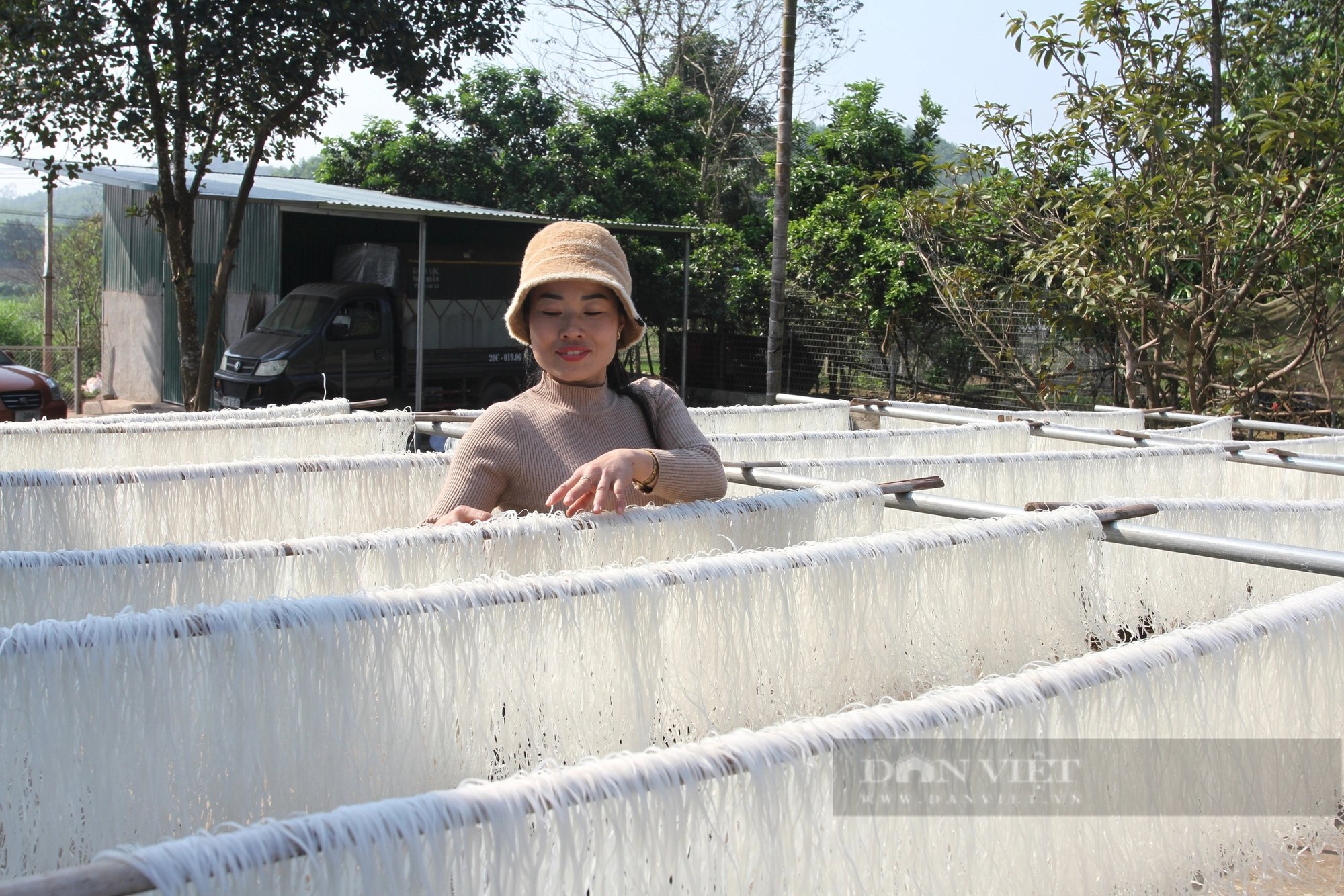
Ms. Truong Thi Huong - Director of Huong Manh Cooperative (Tan Loi commune, Dong Hy district, Thai Nguyen province) started making rice noodles in 2014. Photo: Ha Thanh
According to Ms. Huong, before getting married, her husband had made noodles for a short time, so after getting married, due to not having a stable job, the couple decided to invest in machinery and equipment to produce noodles.
At that time, the couple did not have much experience, so they learned as they went. The first time they started making noodles, they lost a ton of rice without getting any finished product, because they failed to make it right. After a whole month of doing it again and again, Huong and her husband finally produced their first batch of perfect rice noodles.
Since then, the quality of her family's noodles has been increasingly good, and they are favored by many customers, so the products are sold out as soon as they are made. Customers not only buy them to eat but also buy them as gifts, so there are times when there is not enough stock to sell.
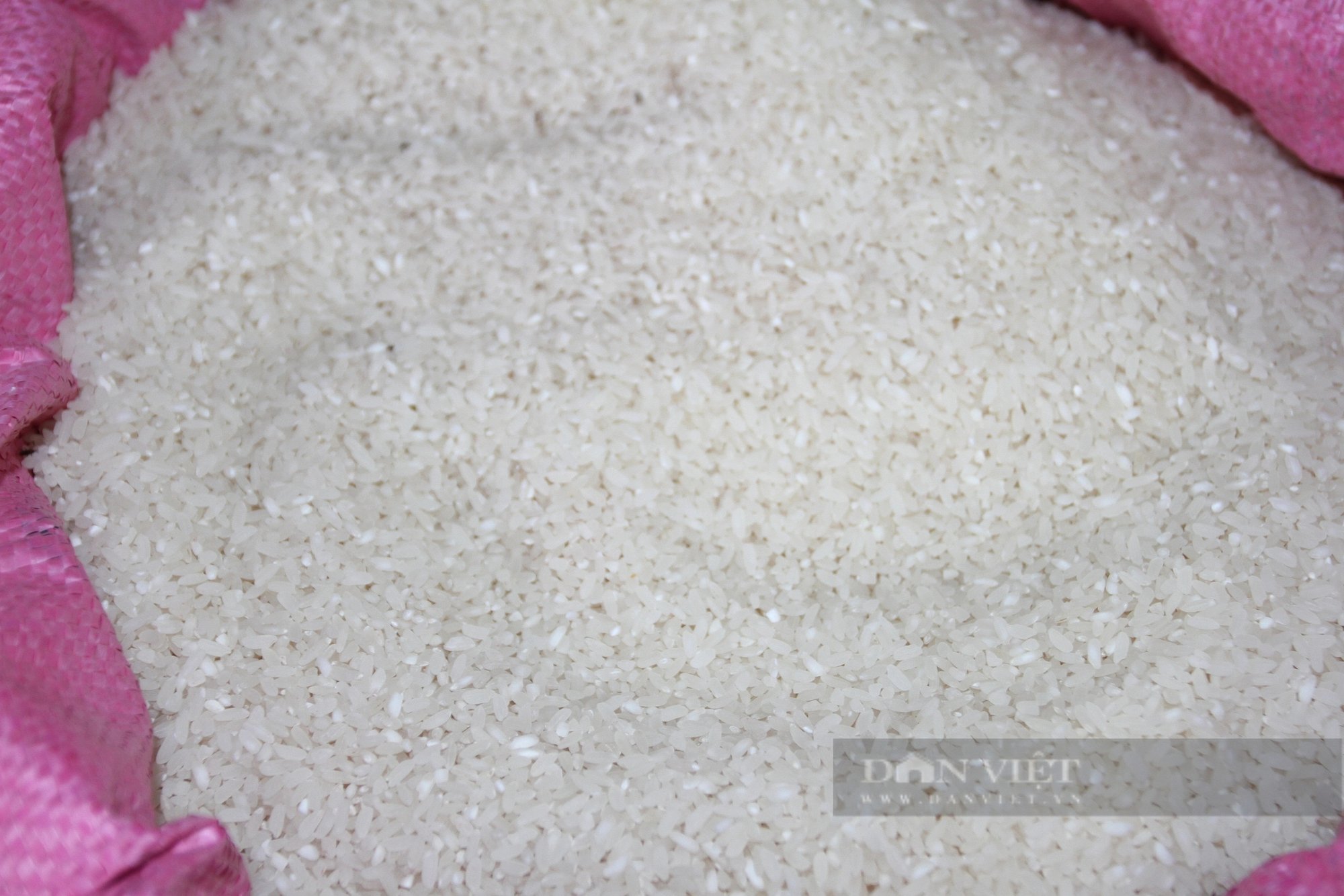
Rice for making noodles is carefully selected. Photo: Ha Thanh
Due to the high quality of the products, in 2022, with the encouragement and support of local authorities and sectors, Ms. Huong and her husband established Huong Manh Cooperative in Tan Loi Commune, Dong Hy District, Thai Nguyen Province with 7 members. Currently, the Cooperative has two main products: vermicelli noodles and pho noodles packaged in different weights.
To make delicious, quality noodles, the selection of ingredients is extremely important. Ms. Huong carefully selected the rice, without any mixes, which is Khang Dan rice, white bao thai rice and standard pink bao thai rice. "The noodles are made entirely from 100% pure rice without any impurities, so good rice will produce good products," Ms. Huong said.
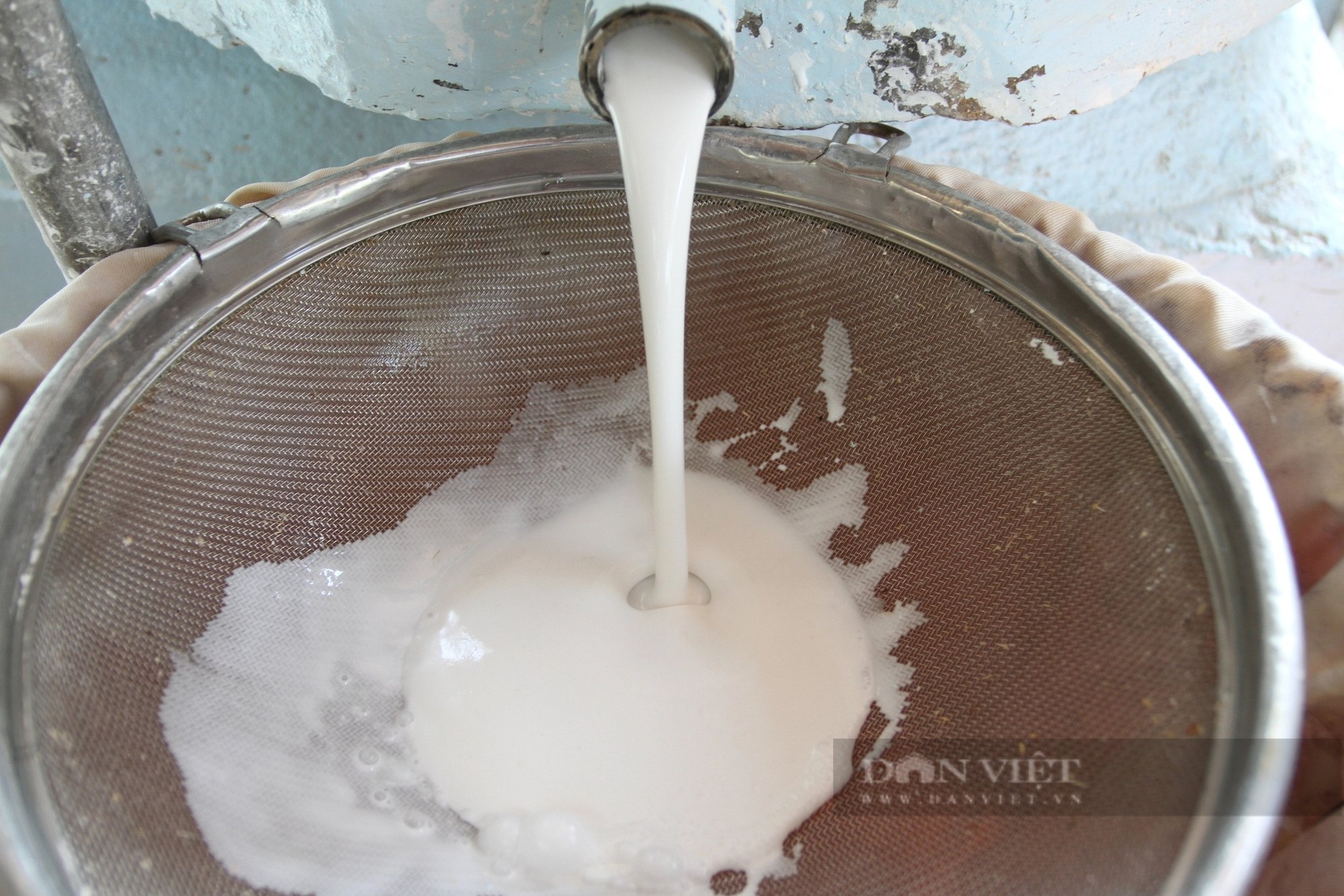
Noodle flour is ground with a stone mortar to produce better quality noodles. Photo: Ha Thanh
After selecting the ingredients, the rice will be thoroughly washed and soaked overnight until the next morning, then ground into flour. After that step, the flour will be filtered and pressed for about 5-6 hours, then put into the noodle extruder. When the noodles have become strands, they will continue to be incubated overnight until the next morning, put into a washing tank, dried, and packaged.
Before, when there was no drying oven, Ms. Huong's family's noodle production depended a lot on the weather. If it rained, production would be impossible. But since the family invested in a drying oven, noodles can still be produced even when it rains, but the cost will be higher.
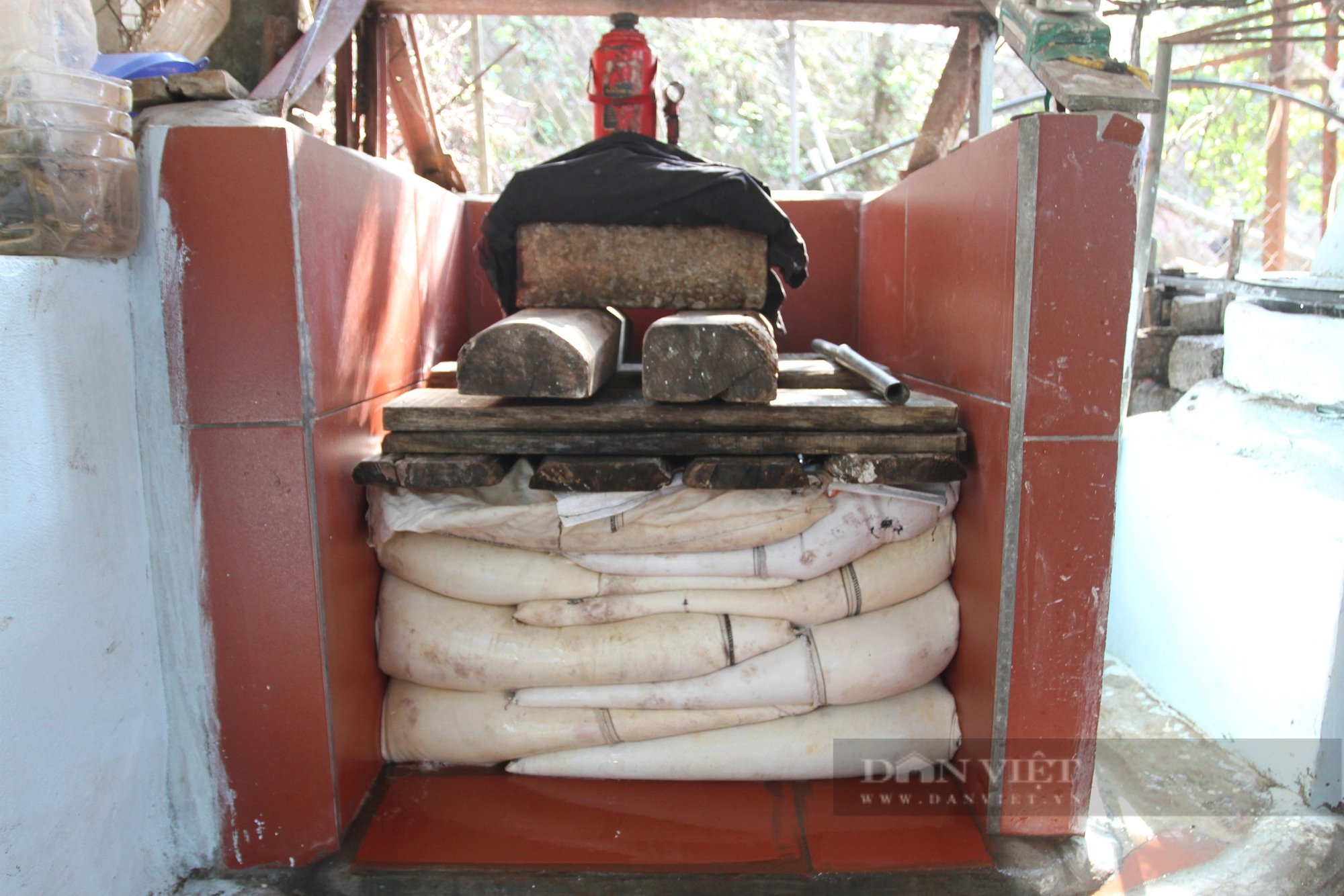
After being ground, the powder is packed into bags for filtering and pressing. Photo: Ha Thanh
According to Ms. Huong, the best weather for noodle production is the dry season from July to December of the year, when the noodles will be beautiful and of good quality, and at the same time, the shelf life will be longer without fading.
On the contrary, in January, February and March, noodles are very likely to break. In May and June, due to the hot weather, noodles can only be used for a short period of 15 days before they lose their color. Therefore, at that time, her family only made noodles to deliver to customers and did not keep any in stock.
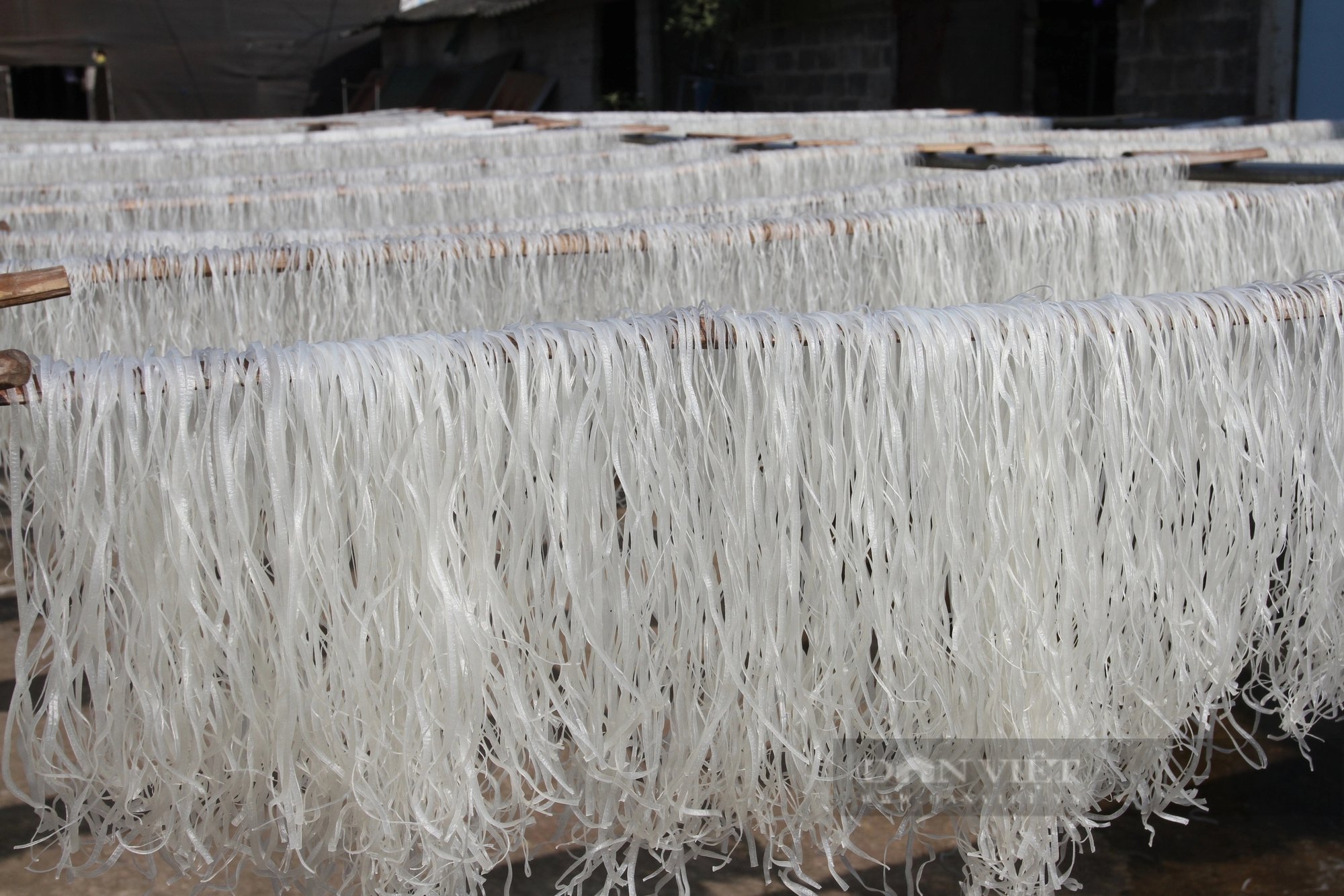
The best weather to make noodles is from July to December. Photo: Ha Thanh
The difference with Ms. Huong's family's rice noodles is that the noodles are clear white, when cooked they are chewy and crispy, not mushy, and after cooking they can be stored for a long time without breaking like many other types of rice noodles on the market today.
The quality is achieved because Ms. Huong uses a stone mill to grind the flour instead of a dry flour grinder, because according to Ms. Huong, when using a dry flour grinder, the noodles will not be clear white but will be opaque, and when cooked, they will be mushy, affecting the quality.
Ms. Huong shared that the best time for her family to sell is from December (the month before Lunar New Year) to January and February of the following year. With two sets of machines, one extruder and one coating machine as they are now, on average, Ms. Huong's family produces 250 - 400 kg of noodles per day depending on the time. To maintain the production and consumption of noodles, Ms. Huong's family currently employs 3 workers, including her husband and wife and one additional daily hired worker.
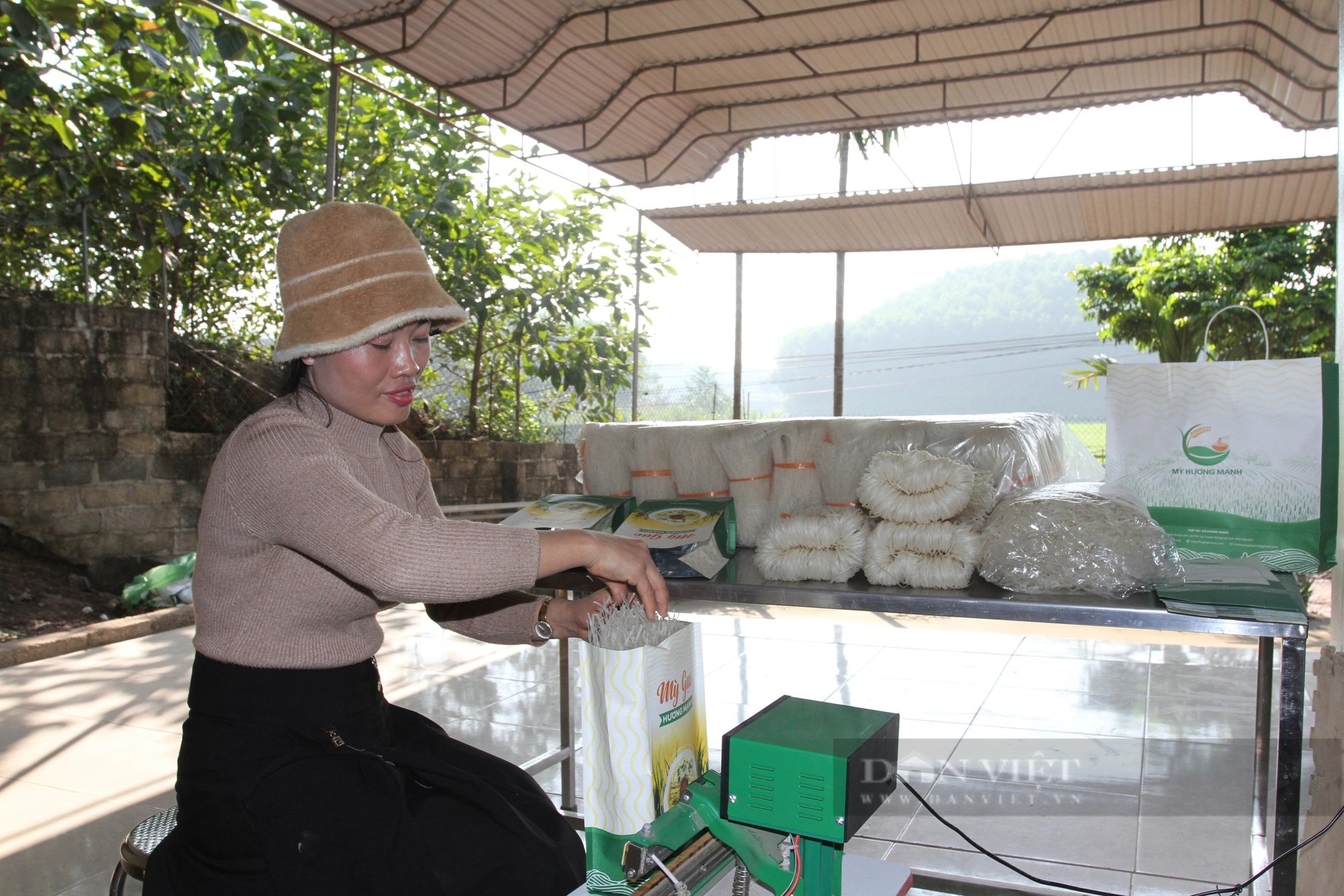
Products are packaged for sale on the market. Photo: Ha Thanh
Currently, Ms. Huong's family's rice noodles are not only sold to people and agents in Thai Nguyen but also to supermarkets, bus stops and exported to some provinces and cities such as Bac Giang, Bac Ninh, Hai Phong, Hanoi , Da Nang...
The rice noodles are being sold by Ms. Huong’s family at prices ranging from 25,000 to 30,000 VND/kg depending on the type of rice. Some products sold in supermarkets are priced at 50,000 to 60,000 VND/kg. Up to now, the products have been registered with barcodes, traceability stamps, and quality product packaging.
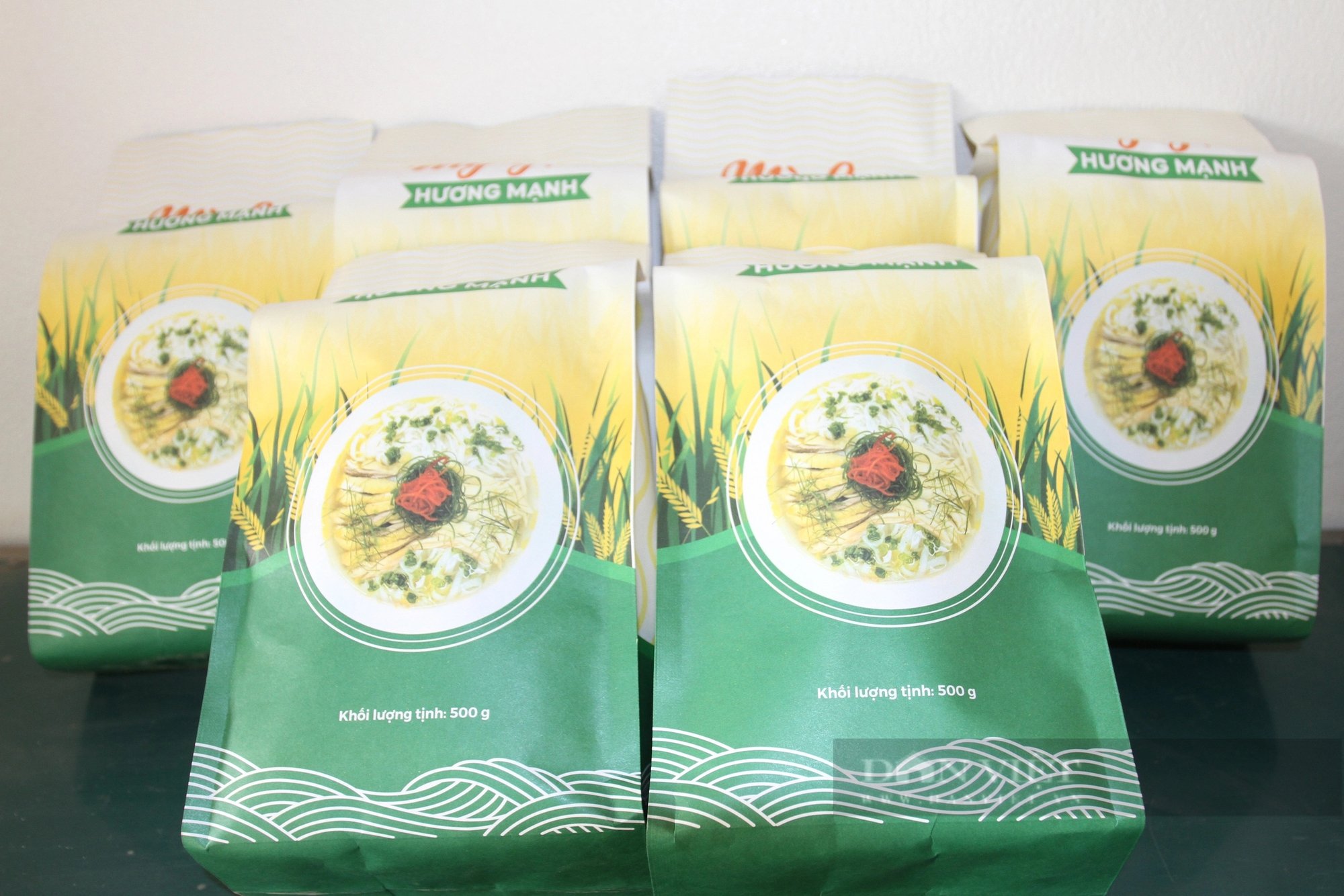
Currently, the cooperative's rice noodle products have packaging, designs and traceability stamps. Photo: Ha Thanh
In the near future, Ms. Huong's family plans to invest in another noodle extrusion machine to expand the production scale, meeting the demand for products brought to the market. However, the biggest difficulty of the cooperative is still the lack of capital, so Ms. Huong hopes to receive support from all levels and sectors to expand the scale and build a product showroom.
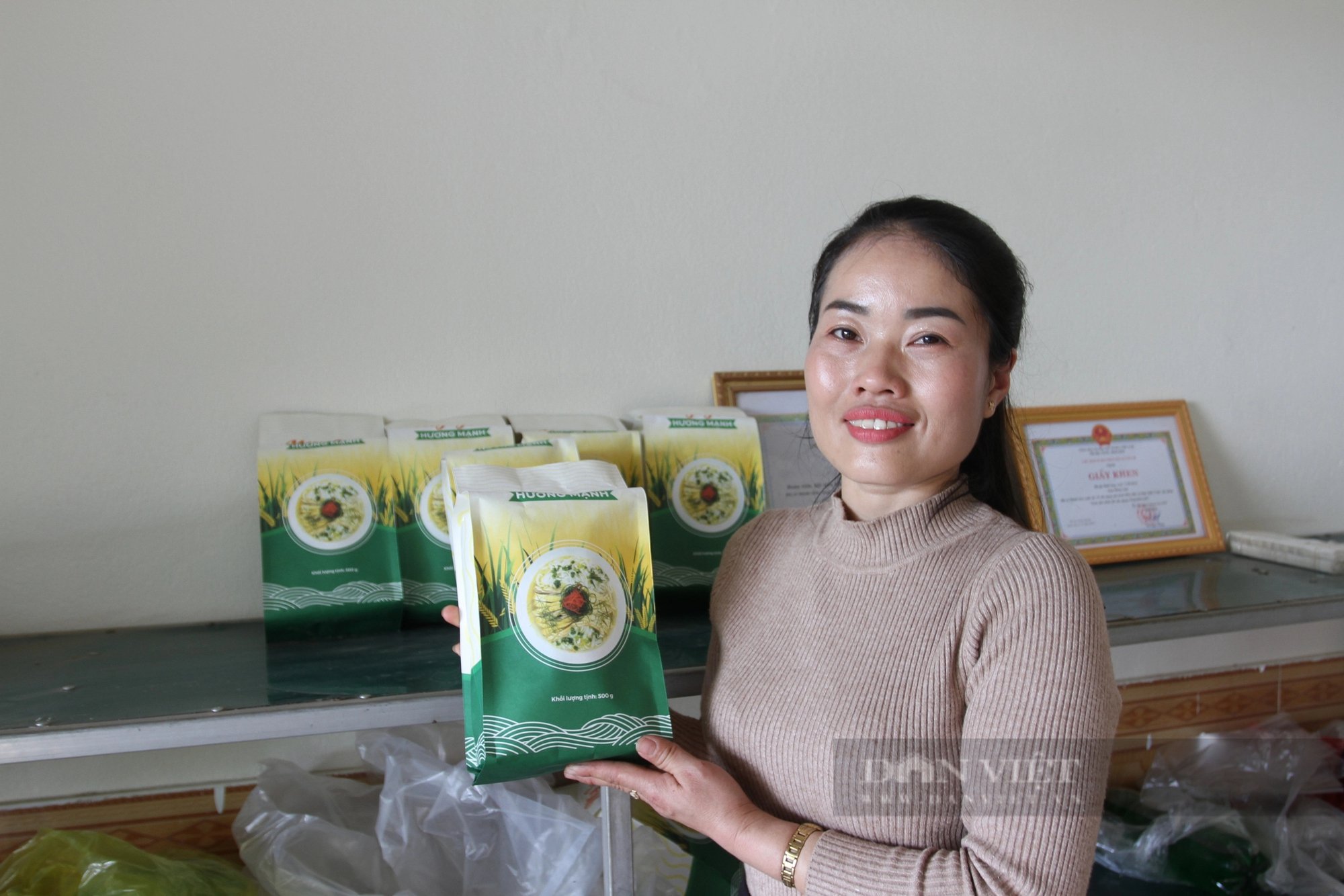
Ms. Huong is completing the procedures to register the OCOP brand for the cooperative's rice noodles this year. Photo: Ha Thanh
Up to now, Ms. Huong is completing the paperwork on food safety and hygiene to register for the OCOP product competition this year. "Hopefully, after the product is certified as OCOP, it will be an opportunity for the cooperative to expand its consumption market, thereby helping the product go further, affirming its reputation in the market, creating more income for workers," Ms. Huong expressed her wish.
Source



![[Photo] Prime Minister Pham Minh Chinh inspects the progress of the National Exhibition and Fair Center project](https://vphoto.vietnam.vn/thumb/1200x675/vietnam/resource/IMAGE/2025/5/19/35189ac8807140d897ad2b7d2583fbae)






















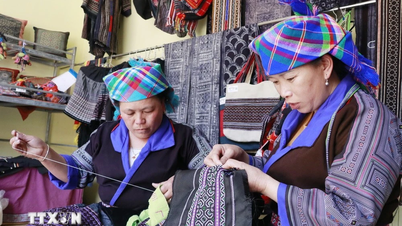























































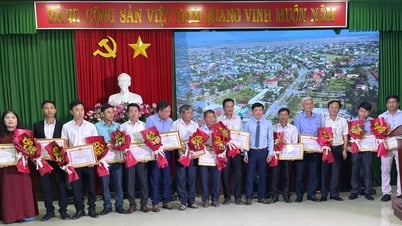










![[VIDEO] - Enhancing the value of Quang Nam OCOP products through trade connections](https://vphoto.vietnam.vn/thumb/402x226/vietnam/resource/IMAGE/2025/5/17/5be5b5fff1f14914986fad159097a677)







Comment (0)